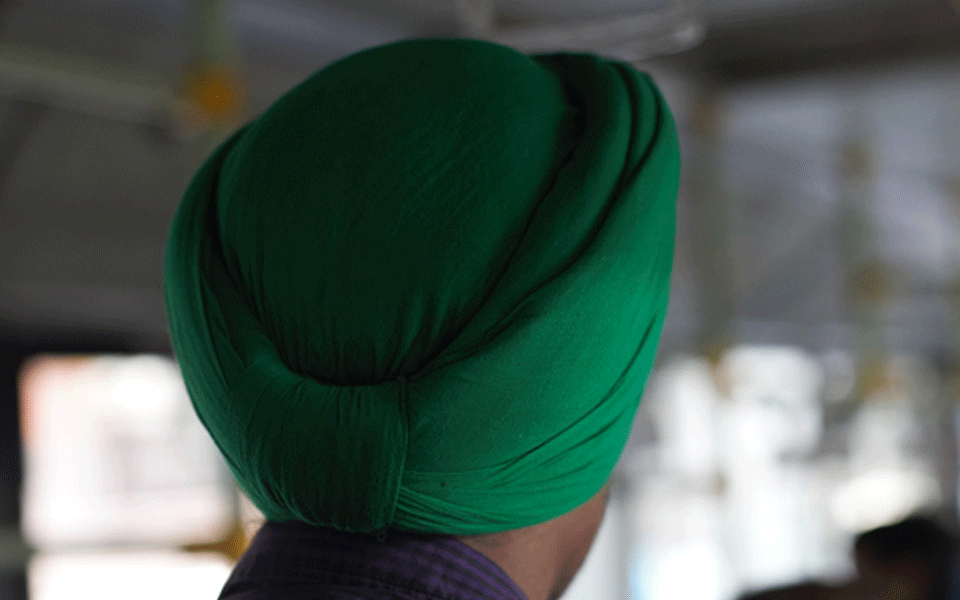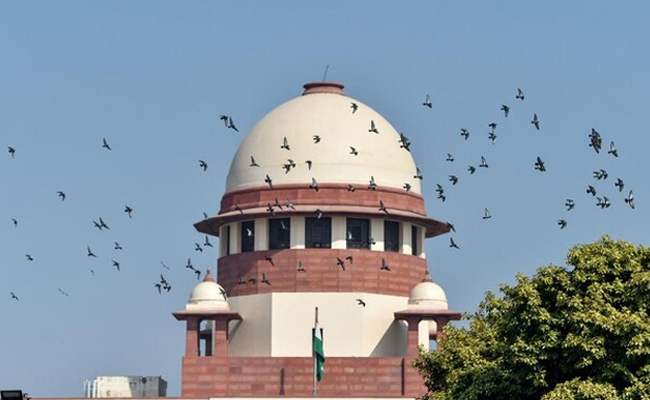Bengaluru: In the background of the ongoing Hijab row in the state, Times of India reported that the Mount Carmel PU College in the city asked a 17-year-old Amritdhari (Baptized) Sikh girl student to remove her Turban in compliance with the dress code prescribed by the institution.
The College claimed that it was following the interim order released on February 10, by the Karnataka High Court which states, “Pending consideration of all these petitions, we restrain all the students regardless of their religion or faith from wearing saffron shawls (Bhagwa), scarfs, hijab, religious flags or the like within the classroom, until further orders”, in the point 10 of the released order.
According to TOI, the college authorities asked the student to remove her Turban on February 16, stating the HC order. However the student refused to comply, it is learned. The parents of the Sikh student have clarified that the College had been accommodating thus far and had not discriminated against their daughter. They insisted that the state government and High Court needs to issue clarifications about the interim order.
As per the IANS report, the issue began when G. Sriram, deputy director of PU Education, who was inspecting the college during practical exams on Monday, directed two students to remove their hijab as per the court order. This led to outrage among the students and they demanded that the order be applied equally to all students without any exceptions. Parents of college students who were asked to remove hijab by the authorities have demanded that the order of the High Court must be enforced equally on all students.
According to the Times of India Report, a Mount Carmel PU College spokesperson said, "We have had no issues with the girl wearing the turban so far. When the college reopened on February 16, we informed all students about the high court order and we went on with our normal activities. On Tuesday, when the DDPU (North) visited the college he found a group of girls in hijab and told them to come to the office and told them about the high court order. These girls have been demanding now that no girls should be allowed to wear their religious symbols and therefore the Sikh girl also should not be allowed to wear the turban. We spoke to the girl's father and later mailed him. We informed them about the order and told them to abide by it. The father responded that it (the turban) is an integral part of their life. We did not want to interfere, but the other girls have been insisting on uniformity and hence we sent the mail," they said.
The student’s father Gurcharan Singh, who is a senior level employee in a major IT company and has been living in Karnataka for the past 17 years, told the TOI that he told college authorities she would not remove her turban.
"She has never faced any discrimination in the college till now. Now, also they seem to be caught in a piquant situation while responding to the high court order," he told TOI.
He wrote to the college that the high court order did not mention anything about ‘Sikh turban' and it should not be misunderstood. "However, I am also in touch with our community advocates and various organizations," he said, urging the authorities to allow his daughter with her turban to attend classes. After the latest interaction with college authorities, Gurcharan Singh has approached senior advocate HS Phoolka and sought his opinion.
"I am sending my opinion to him that neither the HC order nor government order bars Sikh turban," said Phoolka, when contacted by TOI on Wednesday evening. On Wednesday, the college met the girl's father but the meeting was inconclusive
Gurcharan Singh has apprised Jeetendra Singh, administrator of Sri Guru Singh Sabha, Ulsoor, Bengaluru, about the issue.
The content of the letter revealed by the TOI states, "Asking a Sikh to remove his/her turban is a big insult to a Sikh and entire Sikh community. We also stand by those Muslim girls/women who want to cover their head with scarf/dupatta as a part of their faith and request authorities to allow them to do so as it was already practised in our country and it does not cause any trouble to other people. The colour of the scarf and dastaar (turban) can match the uniform of the institution," he wrote.
Let the Truth be known. If you read VB and like VB, please be a VB Supporter and Help us deliver the Truth to one and all.
New Delhi (PTI): The Supreme Court on Monday said it will list for hearing on December 17 a plea related to worsening air pollution levels in Delhi-NCR.
A bench comprising Chief Justice Surya Kant and justices Joymalya Bagchi and Vipul M Pamcholi took note of the submissions of senior advocate Aprajita Singh, who is assisting it as an amicus curiae, that though the preventive measures are there in place but the key issue was of their poor implementation by the authorities.
Singh said till this court directs something, the authorities do not comply with the protocols which are already there.
“This is coming up before a three judges bench on Wednesday. It will come up,” the CJI said.
Another lawyer referred to an application relating to the health issue of children, and said schools, despite the earlier orders, are holding outdoor sports activities.
“Despite the order of this court, Schools have found ways and means to have these sporting activities.. it is taking place. The CAQM (Commission for Air Quality Management) is again citing the order of this court,” the amicus also said.
“We know the problem and let us pass orders which can be complied with. There are some directions which can be forcibly imposed. In these urban metropolitan cities people have their own lifestyle. But the poor…,” the CJI said.
The amicus said the poor labourers are the worst ones to suffer.
Earlier the bench had said the plea against air pollution cannot be treated as a "customary" case to be listed only during the winter months only.
It had said the case will be taken twice in a month to find out short and long-term solutions to the menace.
Delhi on Monday choked under a thick blanket of smog, with the Air Quality Index (AQI) settling at 498, which falls in the higher spectrum of 'severe' category.
The air quality was 'severe' at 38 stations while it was 'very poor' at two stations. Jahangirpuri, which recorded an AQI of 498, recorded the worst air quality amongst all 40 stations.
According to the Central Pollution Control Board, an AQI between 0 and 50 is considered 'good', 51 to 100 'satisfactory', 101 to 200 'moderate', 201 to 300 'poor', 301 to 400 'very poor', and 401 to 500 'severe'.
The AQI in Delhi had climbed to 461 on Sunday and marked the city's most polluted day this winter and the second-worst December air quality day on record, as weak winds and low temperatures trapped pollutants close to the surface.





